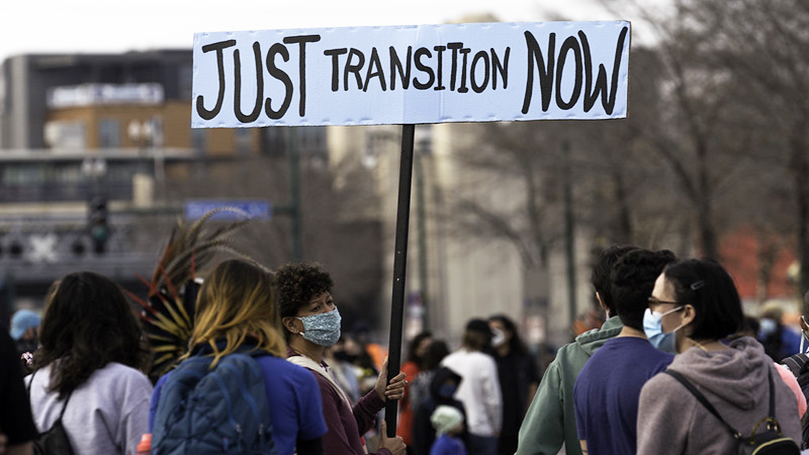
Let’s get real: Things are anything but normal in this country. Attempts to explain Trump’s refusing to cede power along “normal” lines—that he’s upset, is attempting to get a pardon, or is trying to position himself and the GOP for the future—seem strained.
Consider that for three and one-half years Trump has thugged his way through the presidency, threatening, attacking, refusing to back down or apologize, while aligning himself with the extremist white supremacist and fascist-tinged fringe. Why should the country expect anything different now?
Whether or not Trump’s a committed fascist or simply a spoiled CEO seeking God-knows-what seems besides the point. A larger issue is what is the orientation of the class and political forces around him and how far are they prepared to go to get what they want. And that’s a troublesome question.
Here Trump’s actions must be viewed in light of the uncertainty of a political moment where the old refuses to give way and the new cannot quite find its way forward, a time once described as one of “monsters.”
Last Thursday night, Trump made the most dangerous speech ever made by a sitting US president by charging that voters and their representatives in Philadelphia, Atlanta, and Detroit stole the election: “We’ll not allow the corruption to steal such an important election or any election, for that matter,” he said.
Think about that for a moment: the charge is that voters in largely African American cities attempted to illegally overturn the results. In so doing, Trump was attempting to both criminalize and delegitimize the entire process.
You’ve got to go back to the overthrow of the Reconstruction governments to find anything in American history that comes close to this. Back then, Black-led city and state governments in the former slave South were removed from office and the voters disenfranchised after charges of corruption and incompetence. Almost a century of fascist-like rule in the South followed.
Today, what will come next after Trump’s allegations: hate-filled charges of “lock them up” or worse? With Trump forces organizing protest rallies in Pennsylvania this week and a national MAGA march in DC this Saturday, we won’t have to look far for answers.
Alarmingly, the plans seem to go far beyond rallies of the faithful. In the last days, Trump has fired Secretary of Defense Esper and removed several national security and intelligence officials, with rumors circulating about replacing the heads of the FBI and CIA. With seven weeks left in office, the question has to be asked: to what possible ends are these maneuvers?
The administration is also on the offensive on the legal front. Reversing standing DOJ policy, Attorney General Barr authorized prosecutors to look into charges of election fraud. In addition, several lawsuits have been filed; the most significant is aimed at Pennsylvania, the aim of which seems to be to nullify the vote and throw the decision to the GOP majority in the state legislature.
Established legal opinion contends that these suits are without merit. Perhaps, but the most important court is the one of public opinion. On a positive note, if polls are to be believed (and that’s a big question), opinion surveys indicate that an overwhelming majority of Americans believe that Trump lost the election. But that can change quickly.
Trump has also signaled his administration to not cooperate in any way with the Democratic transition team. The General Services Administration has refused to assist the Biden/Harris transition team, and the administration has signaled government departments to begin budgeting for 2021 according to its fiscal projections. Secretary of State Mike Pompeo said that he anticipated a “smooth transition” to a second Trump term. Even the White House’s current employees have been threatened to not look for outside work at the risk of firing and incurring Trump’s wrath.
Confronted by Trump’s refusal, the president-elect and their followers are projecting an air of normalcy, assuring the nation that things will work out, that the transfer of power is inevitable. From their class point of view, it’s a sensible policy. In normal times a president has to serve the national (read ruling-class) interest. Gus Hall used to say that meant offending the least amount of people. Today it means attempting to appeal to all sides and heal a divided nation.
What else can they do but hope that tradition will kick in and the methods of persuasion by the powers-that-be prevail?
But what will happen if they don’t prevail? What then?
To this a friend replied that the ruling class will not allow Trump’s ongoing disruptions. But isn’t it a question of who and what is allowing him to carry on now?
These are far from normal questions, and the required answers may be far from normal as well. But one thing is sure: initiative will be in the hands of those who act. And action cannot only come from the incoming administration. No. People of goodwill and democratic mind must not be silent. Our working class and people must keep the pressure on to defend the vote with all that this implies.
Get out those marching shoes.
Image: Lori Shaull (CC BY-NC 2.0).


 Join Now
Join Now